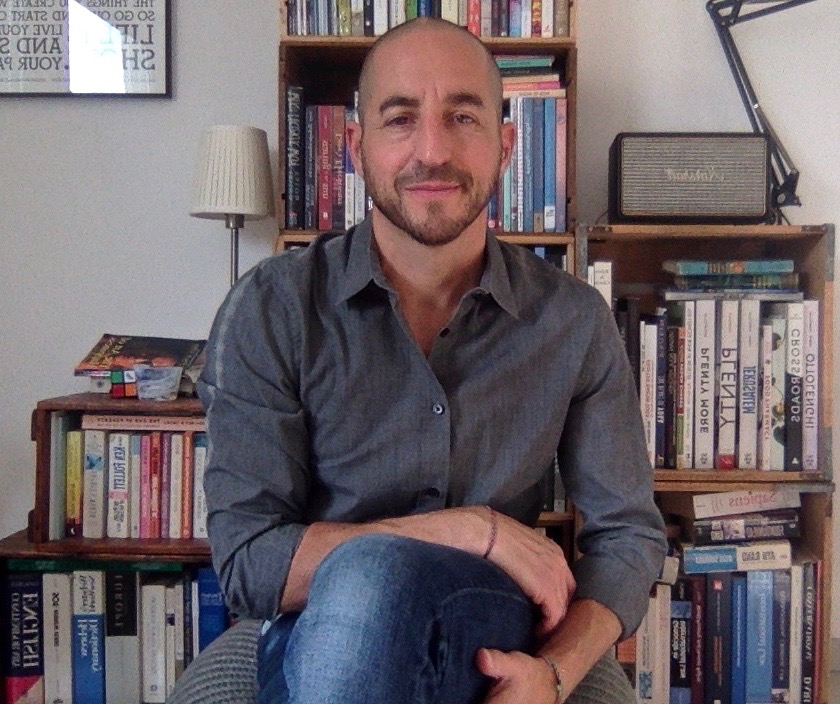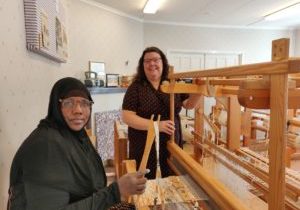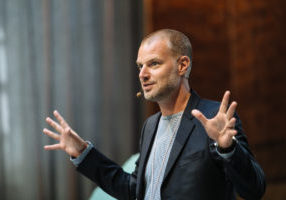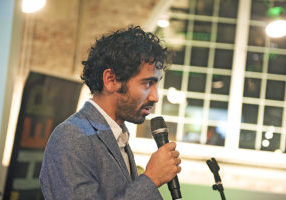
The importance of social impact measurement and how to get it right
October 23, 2019 - Interviews
Creating a positive social impact is what sets a social enterprise apart from competitors and traditional businesses. Doing it well, though, is tricky, and something that many social innovators struggle with.We caught up with Oren Ipp – a member of our Impact Team and coach who specialises in supporting entrepreneurs to measure the social impact of their work – to ask him a few questions on the topic.
Why is social entrepreneurship important?
It goes without saying that we are facing enormous challenges across the globe, from extreme poverty to climate change to violence against women and children. Governments, multilaterals and the non-profit sector have done a lot of great work in education, health, the environment and so forth. But they are still coming up short. The private sector also has an important role to play in contributing to solving the world’s most pressing problems. I would also argue that social entrepreneurship offers a few critical advantages over other players.
In my experience, social enterprises, by virtue of having a revenue generating model, are largely protected from donors’ bureaucratic and political agendas. I would also argue that businesses are also more sustainable, and do not create the donor dependency that we see elsewhere. Social enterprises also tend not to be as encumbered by stale and rigid bureaucracies and are therefore more agile and responsive to the communities they serve. Social enterprises are also often more willing to take risks in ways that governments and big agencies do not. It’s not to say that social entrepreneurship is a silver bullet, but it does have an important role to play in bringing about the change we so badly need.
Why is it important to measure social impact?
Measuring social impact is a way for companies to clearly articulate the change they want to see, detail how they are going to achieve that change, identify benchmarks along the way and continuously monitor their progress. Processes to measure impact also push companies to be clear about why they believe change will result from their products or services; without this step, companies often make assumptions about their customers, the market, their products, etc that are never tested. Ultimately, measuring social impact allows a company to stand behind the business and communicate with confidence its contribution to “doing good”.
Can businesses actually measure social impact?
Honestly, it’s not easy. But it’s also not impossible. I think a lot of companies make the mistake of trying to show that they alone are responsible for the change they want to bring about. This is an attribution problem. Showing a causal relationship between your company’s products or services and social change is a very high bar to set. I often encourage companies to think about their contribution to solving a particular social problem. There should be no shame in partnering with others to do good.
Where do you start?
You start in the beginning, of course! It is almost impossible to identify impact if you don’t know where to look. Fundamentally, measuring impact is a design issue: you have to think about what you want to achieve as you develop your business. Too often it’s an afterthought and we try to piece together evidence of impact after the fact. It’s much more effective and efficient to integrate the question of impact into building your strategy, exploring partnerships, looking for investors and so on. If done properly, an impact lens should serve as a guide for many of the decisions you make in your business.
What are your top tips to get it right?
- Think about impact in everything you do and start as early as possible.
- It’s a process, not a matrix: it matters much less that you “get it right” than that you have an ongoing process that you revise and tweak as you go.
- Have fun. Measuring impact is a creative process that should help focus your business on what is really important – social change.
Thanks for this Oren. As a final question, are you able to share a bit more about what you are currently working on?
I have a few areas of focus at the moment. I continue to work on measuring impact, which at the moment is evaluating the EU’s contribution to peace in Myanmar. I’m also working with a number of accelerators in Sweden and abroad coaching social entrepreneurs on how to measure the impact of their businesses. And, I’m really excited about a new area of work I’ve recently gotten into. After years of exploring how countries, communities and institutions experience transitions, I now also focus on personal transformation as a driver of social change. I coach activists, entrepreneurs and innovators to design and lead lives of meaning, service, passion and balance.










